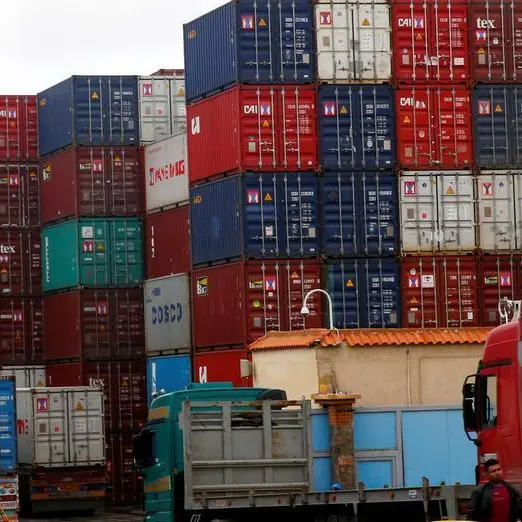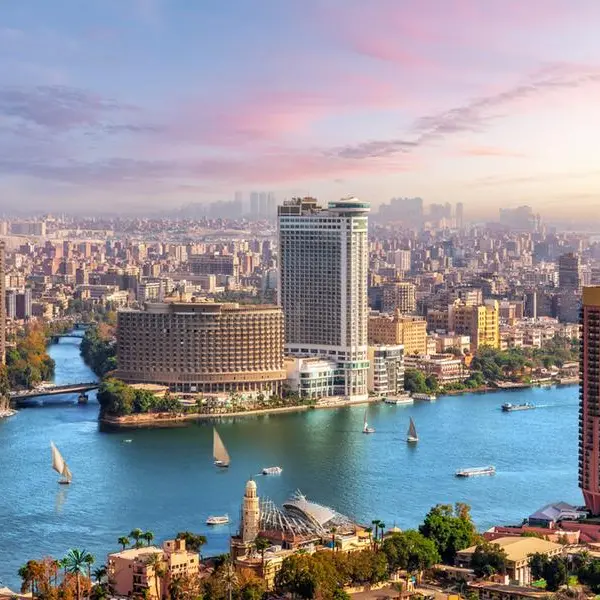PHOTO
Embarking on a transformative journey towards a green economy, Egypt is committed to sustainable development, carbon emission reduction, and environmentally friendly practices across different economic sectors. Despite challenges, the country has implemented various projects and policies to transition to a green economy, and is keen to attract investments into green economy projects to ensure a successful transition.
Green Economy Transition: Important for Egypt
Egypt's green economy strategy can contribute to various aspects, such as social equity, environmental integrity, and addressing climate change concerns, with a focus on sustainable development, employment generation, and poverty reduction, in line with the objectives of a green economy.
By integrating climate issues into development initiatives like the National Social Housing Program, Egypt aims to provide greater stability for low-income families while also mitigating climate change through the use of green buildings, according to the World Bank.
The Sustainable Development Strategy (SDS): Egypt Vision 2030 outlines the country's development path, emphasizing a balanced, diversified, and knowledge-based economy characterized by social integration and participation, which are essential elements of a green economy.
Moreover, an inclusive green economy supports equal rights for men and women, especially vulnerable poor groups. It is directed at economic resources, basic services, ownership and control over land and other forms of property, inheritance, natural resources, appropriate new technologies, and financial services, including microfinance, according to the Ministry of Environment.
Accordingly, transitioning to a green economy is expected to enable economic growth and increase investments while boosting social inclusiveness and environmental quality.
Shifting to a green economy can also help combat poverty in Egypt. "Implementing green technologies and sustainable practices can lead to the establishment of new industries, such as renewable energy and eco-friendly infrastructure, creating job opportunities for local communities," Ihab El-Gamal, a PhD holder in Economics and Public Finance and an economic researcher, tells Arab Finance.
The Path to Green Economy
The Egyptian government aims for green economy projects to constitute 50% of the country's investment plan by fiscal year (FY) 2024/2025. Therefore, Egypt has been adopting an eco-friendly approach to its economic projects and initiatives in recent years.
In this regard, President Abdel Fattah El-Sisi launched the National Initiative for Smart Green Projects (NISGP) on August 7th, 2022, to encourage active participation toward a greener and more sustainable future for Egypt.
The NISGP is a collaborative effort among various governmental entities aimed at surfacing innovative solutions in sustainability and raising climate awareness among Egyptian citizens.
Another step towards the green economy is the issuance of green bonds, a financial instrument designed to fund climate or environmentally focused projects.
In September 2020, the Ministry of Finance pioneered the Middle East and North Africa’s (MENA) first sovereign green bonds at a value of $750 million with a five-year maturity and a return of 5.25%.
Meanwhile, the Ministry of International Cooperation launched a national project integral to the National Strategy for Climate Change 2050, which is the Nexus of Water, Food, and Energy (NWFE) program.
The NWFE program aims to attract and mobilize international efforts towards financing green transformation projects in the Egyptian state.
However, the country still needs to work on other aspects to achieve its green economy transition.
Atef William Andrawes, a PhD holder and Professor of Public Economics and Finance and Economic Expert, tells Arab Finance: "Although Egypt is making unremitting efforts towards greening economic activities, achieving this greatly requires time, efforts, and enormous financial resources. This further requires the application of policies in a way that achieves balance between the three dimensions of sustainable development: economic, social, and environmental."
Andrawes further explains that “one of the aspects related to employing government policies and adapting them to serve this purpose is the so-called green tax reform. This reform seeks to use a combination of the environmental tax report with a reduction in income tax, sales tax, or value-added tax, provided that these reductions are financed with the proceeds of the environmental tax.”
Financing and Investments
Securing finance and investments is crucial for achieving the country’s green economy ambitions. "Providing adequate financing for the green economy transition is the main issue facing the transition, given that funds are the primary driver. The scarcity of available funds has impeded the pace of this transition," Andrawes says.
The Ministry of Trade and Industry has worked with the Support to Energy Efficiency and Environmental Management Project (STEP) to encourage energy efficiency practices and support the transition to a greener economy.
The government has also developed a framework for sustainable finance across Egyptian banks to emphasize the incorporation of environmental, social, and governance (ESG) factors.
Additionally, the government has proposed three financial mechanisms to support the capital needs of green small and medium-sized enterprises (SMEs) at various business stages, including a technical assistance and matchmaking process, a seed grant facility, and a flexible guarantee facility. These steps are aimed at attracting green investments.
Overcoming Hurdles
Egypt's transition to a green economy grapples with significant challenges, including data and information gaps, institutional capacity, private sector involvement, and public understanding and acceptance, according to El-Gamal.
In order to face these challenges, El-Gamal notes that Egypt needs to follow “a multi-pronged approach, including fostering international collaboration and knowledge sharing to access green technologies and finance.”
“Egypt also needs to enable policy frameworks that incentivize green investments, remove market barriers, and align regulations with sustainability goals,” El-Gamal explains.
Furthermore, El-Gamal points out that the country can resolve these challenges by “investing in training and education to develop a skilled workforce for green jobs and enhance institutional capacity, in addition to raising public awareness through education and campaigns to create a supportive social environment for change.”
Egypt can further ensure a successful transition to a green economy through innovation. El-Gamal says that innovation can help draw more investments to the country as it acts as a "catalyst for knowledge transfer and accelerating progress towards a green economy."
Despite challenges, Egypt is moving towards a green economy transition. The country has been bolstering green projects and launching green initiatives to achieve its green economy ambitions. By luring more investments and enacting a number of formidable reforms, Egypt can drive a successful transition.
Copyright © 2022 Arab Finance Brokerage Company All rights reserved. Provided by SyndiGate Media Inc. (Syndigate.info).




















